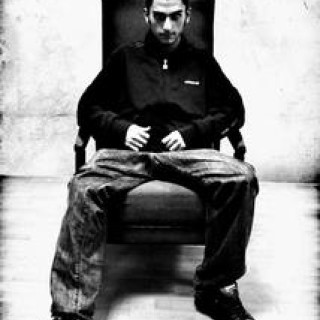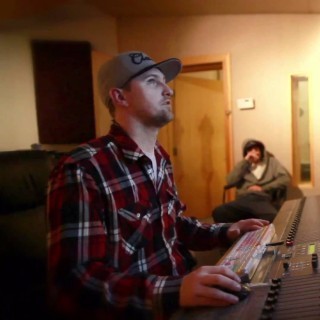
84
Poetry
Tekst piosenki
The Prison Of Jacopo Foscari
Jac. Fos. (solus). No light, save yon faint gleam which shows me walls
Which never echoed but to Sorrow's sounds,[58]
The sigh of long imprisonment, the step
Of feet on which the iron clanked the groan
Of Death, the imprecation of Despair!
And yet for this I have returned to Venice,
With some faint hope, 'tis true, that Time, which wears[153]
The marble down, had worn away the hate
Of men's hearts; but I knew them not, and here
Must I consume my own, which never beat
For Venice but with such a yearning as
The dove has for her distant nest, when wheeling
High in the air on her return to greet
Her callow brood. What letters are these which
[Approaching the wall.
Are scrawled along the inexorable wall?
Will the gleam let me trace them? Ah! the names
Of my sad predecessors in this place,[59]
The dates of their despair, the brief words of
A grief too great for many. This stone page
Holds like an epitaph their history;
And the poor captive's tale is graven on
His dungeon barrier, like the lover's record
Upon the bark of some tall tree,[60] which bears
His own and his belovéd's name. Alas!
I recognise some names familiar to me,
And blighted like to mine, which I will add,
Fittest for such a chronicle as this,
Which only can be read, as writ, by wretches.[bk]
[He engraves his name.
Enter a Familiar of "the Ten."
Fam. I bring you food.
Jac. Fos.I pray you set it down;
I am past hunger: but my lips are parched—
The water!
Fam.There.[154]
Jac. Fos. (after drinking). I thank you: I am better.
Fam. I am commanded to inform you that
Your further trial is postponed.
Jac. Fos.Till when?
Fam. I know not.—It is also in my orders
That your illustrious lady be admitted.
Jac. Fos. Ah! they relent, then—I had ceased to hope it:
'Twas time.
Enter Marina.
Mar.My best belovéd!
Jac. Fos. (embracing her).My true wife,
And only friend! What happiness!
Mar.We'll part
No more.
Jac. Fos. How! would'st thou share a dungeon?
Mar.Aye,
The rack, the grave, all—any thing with thee,
But the tomb last of all, for there we shall
Be ignorant of each other, yet I will
Share that—all things except new separation;
It is too much to have survived the first.
How dost thou? How are those worn limbs? Alas!
Why do I ask? Thy paleness——
Jac. Fos.'Tis the joy
Of seeing thee again so soon, and so
Without expectancy, has sent the blood
Back to my heart, and left my cheeks like thine,
For thou art pale too, my Marina!
Mar.'Tis
The gloom of this eternal cell, which never
Knew sunbeam, and the sallow sullen glare
Of the familiar's torch, which seems akin[bl]
To darkness more than light, by lending to
The dungeon vapours its bituminous smoke,
Which cloud whate'er we gaze on, even thine eyes—
No, not thine eyes—they sparkle—how they sparkle![155]
Jac. Fos. And thine!—but I am blinded by the torch.
Mar. As I had been without it. Couldst thou see here?
Jac. Fos. Nothing at first; but use and time had taught me
Familiarity with what was darkness;
And the grey twilight of such glimmerings as
Glide through the crevices made by the winds
Was kinder to mine eyes than the full Sun,
When gorgeously o'ergilding any towers
Save those of Venice; but a moment ere
Thou earnest hither I was busy writing.
Mar. What?
Jac. Fos. My name: look, 'tis there—recorded next
The name of him who here preceded me,—
If dungeon dates say true.
Mar.And what of him?
Jac. Fos. These walls are silent of men's ends; they only
Seem to hint shrewdly of them. Such stern walls
Were never piled on high save o'er the dead,
Or those who soon must be so.—What of him?
Thou askest.—What of me? may soon be asked,
With the like answer—doubt and dreadful surmise—
Unless thou tell'st my tale.
Mar.I speak of thee!
Jac. Fos. And wherefore not? All then shall speak of me:
The tyranny of silence is not lasting,
And, though events be hidden, just men's groans
Will burst all cerement, even a living grave's!
I do not doubt my memory, but my life;
And neither do I fear.
Mar.Thy life is safe.
Jac. Fos. And liberty?
Mar.The mind should make its own!
Jac. Fos. That has a noble sound; but 'tis a sound,
A music most impressive, but too transient:
The Mind is much, but is not all. The Mind
Hath nerved me to endure the risk of death,
And torture positive, far worse than death[156]
(If death be a deep sleep), without a groan,
Or with a cry which rather shamed my judges
Than me; but 'tis not all, for there are things
More woful—such as this small dungeon, where
I may breathe many years.
Mar.Alas! and this
Small dungeon is all that belongs to thee
Of this wide realm, of which thy sire is Prince.
Jac. Fos. That thought would scarcely aid me to endure it.
My doom is common; many are in dungeons,
But none like mine, so near their father's palace;
But then my heart is sometimes high, and hope
Will stream along those moted rays of light
Peopled with dusty atoms, which afford
Our only day; for, save the gaoler's torch,
And a strange firefly, which was quickly caught
Last night in yon enormous spider's net,
I ne'er saw aught here like a ray. Alas!
I know if mind may bear us up, or no,
For I have such, and shown it before men;
It sinks in solitude: my soul is social.
Mar. I will be with thee.
Jac. Fos.Ah! if it were so!
But that they never granted—nor will grant,
And I shall be alone: no men; no books—
Those lying likenesses of lying men.
I asked for even those outlines of their kind,
Which they term annals, history, what you will,
Which men bequeath as portraits, and they were
Refused me,—so these walls have been my study,
More faithful pictures of Venetian story,
With all their blank, or dismal stains, than is
The Hall not far from hence, which bears on high
Hundreds of Doges, and their deeds and dates.
Mar. I come to tell thee the result of their
Last council on thy doom.
Jac. Fos.I know it—look!
[He points to his limbs, as referring to the Question
which he had undergone.
Mar. No—no—no more of that: even they relent[157]
From that atrocity.
Jac. Fos.What then?
Mar.That you
Return to Candia.
Jac. Fos.Then my last hope's gone.
I could endure my dungeon, for 'twas Venice;
I could support the torture, there was something
In my native air that buoyed my spirits up
Like a ship on the Ocean tossed by storms,
But proudly still bestriding[61] the high waves,
And holding on its course; but there, afar,
In that accurséd isle of slaves and captives,
And unbelievers, like a stranded wreck,
My very soul seemed mouldering in my bosom,
And piecemeal I shall perish, if remanded.
Mar. And here?
Jac. Fos.At once—by better means, as briefer.[bm]
What! would they even deny me my Sire's sepulchre,
As well as home and heritage?
Mar.My husband!
I have sued to accompany thee hence,
And not so hopelessly. This love of thine
For an ungrateful and tyrannic soil
Is Passion, and not Patriotism; for me,
So I could see thee with a quiet aspect,
And the sweet freedom of the earth and air,
I would not cavil about climes or regions.
This crowd of palaces and prisons is not
A Paradise; its first inhabitants
Were wretched exiles.
Jac. Fos.Well I know how wretched!
Mar. And yet you see how, from their banishment
Before the Tartar into these salt isles,
Their antique energy of mind, all that[158]
Remained of Rome for their inheritance,
Created by degrees an ocean Rome;[62]
And shall an evil, which so often leads
To good, depress thee thus?
Jac. Fos.Had I gone forth
From my own land, like the old patriarchs, seeking
Another region, with their flocks and herds;
Had I been cast out like the Jews from Zion,
Or like our fathers, driven by Attila[63]
From fertile Italy, to barren islets,
I would have given some tears to my late country
And many thoughts; but afterwards addressed
Myself, with those about me, to create
A new home and fresh state: perhaps I could
Have borne this—though I know not.
Mar.Wherefore not?
It was the lot of millions, and must be
The fate of myriads more.
Jac. Fos.Aye—we but hear
Of the survivors' toil in their new lands,[159]
Their numbers and success; but who can number
The hearts which broke in silence at that parting,
Or after their departure; of that malady[64]
Which calls up green and native fields to view
From the rough deep, with such identity
To the poor exile's fevered eye, that he
Can scarcely be restrained from treading them?
That melody,[65] which out of tones and tunes[bn]
Collects such pasture for the longing sorrow
Of the sad mountaineer, when far away
From his snow canopy of cliffs and clouds,
That he feeds on the sweet, but poisonous thought,
And dies.[66] You call this weakness! It is strength,
I say,—the parent of all honest feeling.
He who loves not his Country, can love nothing.
Mar. Obey her, then: 'tis she that puts thee forth.[]
Jac. Fos. Aye, there it is; 'tis like a mother's curse
Upon my soul—the mark is set upon me.
The exiles you speak of went forth by nations,
Their hands upheld each other by the way,
Their tents were pitched together—I'm alone.
Mar. You shall be so no more—I will go with thee.
Jac. Fos. My best Marina!—and our children?
Mar.They,
I fear, by the prevention of the state's
Abhorrent policy, (which holds all ties
As threads, which may be broken at her pleasure),
Will not be suffered to proceed with us.
Jac. Fos. And canst thou leave them?
Mar.Yes—with many a pang!
But—I can leave them, children as they are,
To teach you to be less a child. From this
Learn you to sway your feelings, when exacted
By duties paramount; and 'tis our first
On earth to bear.
Jac. Fos.Have I not borne?
Mar.Too much
From tyrannous injustice, and enough
To teach you not to shrink now from a lot,
Which, as compared with what you have undergone
Of late, is mercy.
Jac. Fos.Ah! you never yet
Were far away from Venice, never saw
Her beautiful towers in the receding distance,
While every furrow of the vessel's track
Seemed ploughing deep into your heart; you never
Saw day go down upon your native spires[bo]
So calmly with its gold and crimson glory,
And after dreaming a disturbéd vision
Of them and theirs, awoke and found them not.
Mar. I will divide this with you. Let us think
Of our departure from this much-loved city,
(Since you must love it, as it seems,) and this
Chamber of state, her gratitude allots you.
Our children will be cared for by the Doge,
And by my uncles; we must sail ere night.[161]
Jac. Fos. That's sudden. Shall I not behold my father?
Mar. You will.
Jac. Fos.Where?
Mar.Here, or in the ducal chamber—
He said not which. I would that you could bear
Your exile as he bears it.
Jac. Fos.Blame him not.
I sometimes murmur for a moment; but
He could not now act otherwise. A show
Of feeling or compassion on his part
Would have but drawn upon his agéd head
Suspicion from "the Ten," and upon mine
Accumulated ills.
Mar.Accumulated!
What pangs are those they have spared you?
Jac. Fos.That of leaving
Venice without beholding him or you,
Which might have been forbidden now, as 'twas
Upon my former exile.
Mar.That is true,
And thus far I am also the State's debtor,
And shall be more so when I see us both
Floating on the free waves—away—away—
Be it to the earth's end, from this abhorred,
Unjust, and——
Jac. Fos.Curse it not. If I am silent,
Who dares accuse my Country?
Mar.Men and Angels!
The blood of myriads reeking up to Heaven,
The groans of slaves in chains, and men in dungeons,
Mothers, and wives, and sons, and sires, and subjects,
Held in the bondage of ten bald-heads; and
Though last, not least, thy silence! Couldst thou say
Aught in its favour, who would praise like thee?
Jac. Fos. Let us address us then, since so it must be,
To our departure. Who comes here?
[162]
Enter Loredano attended by Familiars.
Lor. (to the Familiars).Retire,
But leave the torch.[Exeunt the two Familiars.
Jac. Fos. Most welcome, noble Signor.
I did not deem this poor place could have drawn
Such presence hither.
Lor.'Tis not the first time
I have visited these places.
Mar.Nor would be
The last, were all men's merits well rewarded.
Came you here to insult us, or remain[bp]
As spy upon us, or as hostage for us?
Lor. Neither are of my office, noble Lady!
I am sent hither to your husband, to
Announce "the Ten's" decree.
Mar.That tenderness
Has been anticipated: it is known.
Lor. As how?
Mar.I have informed him, not so gently,
Doubtless, as your nice feelings would prescribe,
The indulgence of your colleagues; but he knew it.
If you come for our thanks, take them, and hence!
The dungeon gloom is deep enough without you,
And full of reptiles, not less loathsome, though
Their sting is honester.
Jac. Fos.I pray you, calm you:
What can avail such words?
Mar.To let him know
That he is known.
Lor.Let the fair dame preserve
Her sex's privilege.
Mar.I have some sons, sir,
Will one day thank you better.
Lor.You do well
To nurse them wisely. Foscari—you know
Your sentence, then?
Jac. Fos.Return to Candia?
Lor.True—
For life.[163]
Jac. Fos. Not long.
Lor.I said—for life.
Jac. Fos.And I
Repeat—not long.
Lor.A year's imprisonment
In Canea—afterwards the freedom of
The whole isle.
Jac. Fos.Both the same to me: the after
Freedom as is the first imprisonment.
Is't true my wife accompanies me?
Lor.Yes,
If she so wills it.
Mar.Who obtained that justice?
Lor. One who wars not with women.
Mar.But oppresses
Men: howsoever let him have my thanks
For the only boon I would have asked or taken
From him or such as he is.
Lor.He receives them
As they are offered.
Mar.May they thrive with him
So much!—no more.
Jac. Fos.Is this, sir, your whole mission?
Because we have brief time for preparation,
And you perceive your presence doth disquiet
This lady, of a house noble as yours.
Mar. Nobler!
Lor.How nobler?
Mar.As more generous!
We say the "generous steed" to express the purity
Of his high blood. Thus much I've learnt, although
Venetian (who see few steeds save of bronze),[67]
From those Venetians who have skirred[68] the coasts
Of Egypt and her neighbour Araby:
And why not say as soon the "generous man?"
If race be aught, it is in qualities[164]
More than in years; and mine, which is as old
As yours, is better in its product, nay—
Look not so stern—but get you back, and pore
Upon your genealogic tree's most green
Of leaves and most mature of fruits, and there
Blush to find ancestors, who would have blushed
For such a son—thou cold inveterate hater!
Jac. Fos. Again, Marina!
Mar.Again! still, Marina.
See you not, he comes here to glut his hate
With a last look upon our misery?
Let him partake it!
Jac. Fos.That were difficult.
Mar. Nothing more easy. He partakes it now—
Aye, he may veil beneath a marble brow
And sneering lip the pang, but he partakes it.
A few brief words of truth shame the Devil's servants
No less than Master; I have probed his soul
A moment, as the Eternal Fire, ere long,
Will reach it always. See how he shrinks from me!
With death, and chains, and exile in his hand,
To scatter o'er his kind as he thinks fit;
They are his weapons, not his armour, for
I have pierced him to the core of his cold heart.
I care not for his frowns! We can but die,
And he but live, for him the very worst
Of destinies: each day secures him more
His tempter's.
Jac. Fos.This is mere insanity.
Mar. It may be so; and who hath made us mad?
Lor. Let her go on; it irks not me.
Mar.That's false!
You came here to enjoy a heartless triumph
Of cold looks upon manifold griefs! You came
To be sued to in vain—to mark our tears,
And hoard our groans—to gaze upon the wreck
Which you have made a Prince's son—my husband;
In short, to trample on the fallen—an office
The hangman shrinks from, as all men from him!
How have you sped? We are wretched, Signor, as
Your plots could make, and vengeance could desire us,[165]
And how feel you?
Lor.As rocks.
Mar.By thunder blasted:
They feel not, but no less are shivered. Come,
Foscari; now let us go, and leave this felon,
The sole fit habitant of such a cell,
Which he has peopled often, but ne'er fitly
Till he himself shall brood in it alone.
Enter the Doge.
Jac. Fos. My father!
Doge (embracing him). Jacopo! my son—my son!
Jac. Fos. My father still! How long it is since I
Have heard thee name my name—our name!
Doge.My boy!
Couldst thou but know——
Jac. Fos.I rarely, sir, have murmured.
Doge. I feel too much thou hast not.
Mar.Doge, look there!
[She points to Loredano.
Doge. I see the man—what mean'st thou?
Mar.Caution!
Lor.Being
The virtue which this noble lady most[bq]
May practise, she doth well to recommend it.
Mar. Wretch! 'tis no virtue, but the policy
Of those who fain must deal perforce with vice:
As such I recommend it, as I would
To one whose foot was on an adder's path.
Doge. Daughter, it is superfluous; I have long
Known Loredano.
Lor.You may know him better.
Mar. Yes; worse he could not.
Jac. Fos.Father, let not these
Our parting hours be lost in listening to
Reproaches, which boot nothing. Is it—is it,
Indeed, our last of meetings?
Doge.You behold
These white hairs![166]
Jac. Fos.And I feel, besides, that mine
Will never be so white. Embrace me, father!
I loved you ever—never more than now.
Look to my children—to your last child's children:
Let them be all to you which he was once,
And never be to you what I am now.
May I not see them also?
Mar.No—not here.
Jac. Fos. They might behold their parent any where.
Mar. I would that they beheld their father in
A place which would not mingle fear with love,
To freeze their young blood in its natural current.
They have fed well, slept soft, and knew not that
Their sire was a mere hunted outlaw. Well,
I know his fate may one day be their heritage,
But let it only be their heritage,
And not their present fee. Their senses, though
Alive to love, are yet awake to terror;
And these vile damps, too, and yon thick green wave
Which floats above the place where we now stand—
A cell so far below the water's level,
Sending its pestilence through every crevice,
Might strike them: this is not their atmosphere,
However you—and you—and most of all,
As worthiest—you, sir, noble Loredano!
May breathe it without prejudice.
Jac. Fos.I had not
Reflected upon this, but acquiesce.
I shall depart, then, without meeting them?
Doge. Not so: they shall await you in my chamber.
Jac. Fos. And must I leave them—all?
Lor.You must.
Jac. Fos.Not one?
Lor. They are the State's.
Mar.I thought they had been mine.
Lor. They are, in all maternal things.
Mar.That is,
In all things painful. If they're sick, they will
Be left to me to tend them; should they die,
To me to bury and to mourn; but if
They live, they'll make you soldiers, senators,[167]
Slaves, exiles—what you will; or if they are
Females with portions, brides and bribes for nobles!
Behold the State's care for its sons and mothers!
Lor. The hour approaches, and the wind is fair.
Jac. Fos. How know you that here, where the genial wind
Ne'er blows in all its blustering freedom?
Lor.'Twas so
When I came here. The galley floats within
A bow-shot of the "Riva di Schiavoni."
Jac. Fos. Father! I pray you to precede me, and
Prepare my children to behold their father.
Doge. Be firm, my son!
Jac. Fos.I will do my endeavour.
Mar. Farewell! at least to this detested dungeon,
And him to whose good offices you owe
In part your past imprisonment.
Lor.And present
Liberation.
Doge.He speaks truth.
Jac. Fos.No doubt! but 'tis
Exchange of chains for heavier chains I owe him.
He knows this, or he had not sought to change them,
But I reproach not.
Lor.The time narrows, Signor.
Jac. Fos. Alas! I little thought so lingeringly
To leave abodes like this: but when I feel
That every step I take, even from this cell,
Is one away from Venice, I look back
Even on these dull damp walls, and——
Doge.Boy! no tears.
Mar. Let them flow on: he wept not on the rack
To shame him, and they cannot shame him now.
They will relieve his heart—that too kind heart—
And I will find an hour to wipe away
Those tears, or add my own. I could weep now,
But would not gratify yon wretch so far.
Let us proceed. Doge, lead the way.
Lor. (to the Familiar).The torch, there!
Mar. Yes, light us on, as to a funeral pyre,
With Loredano mourning like an heir.[168]
Doge. My son, you are feeble; take this hand.
Jac. Fos.Alas!
Must youth support itself on age, and I
Who ought to be the prop of yours?
Lor.Take mine.
Mar. Touch it not, Foscari; 'twill sting you. Signor,
Stand off! be sure, that if a grasp of yours
Would raise us from the gulf wherein we are plunged,
No hand of ours would stretch itself to meet it.
Come, Foscari, take the hand the altar gave you;
It could not save, but will support you ever.
Tłumaczenie
Brak
Polecani artyści
Najnowsze teksty piosenek
Sprawdź teksty piosenek i albumy dodane w ciągu ostatnich 7 dni


























